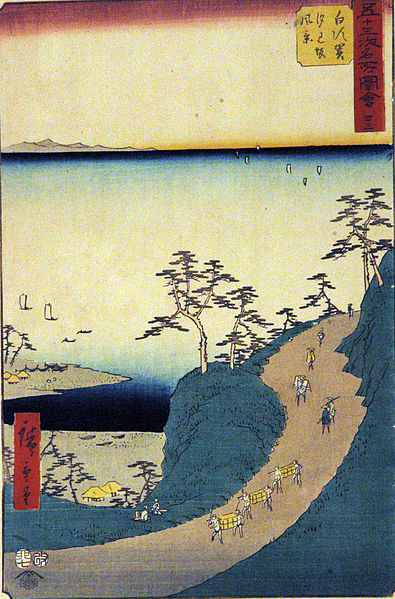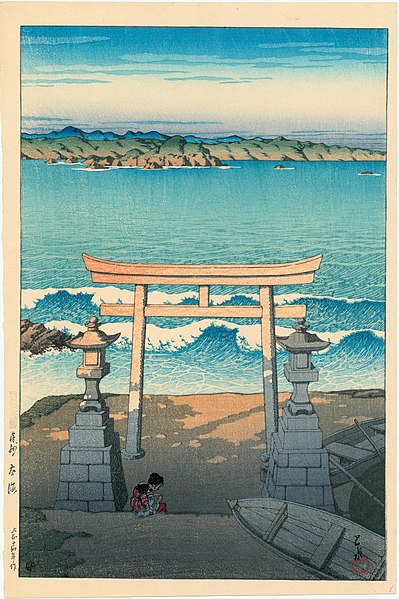
Thammasat University students interested in comparative literature, history, geography, and related subjects may find a new book useful.
A Poetic History of the Oceans: Literature and Maritime Modernity is an Open Access book available for free download at this link:
https://brill.com/view/title/57183?rskey=evIEyx&result=3
The Thammasat University Library collection includes several books about different aspects of oceans.
As TU students may know, in standard English language usage, oceans are not the same as seas, although the terms are sometimes used interchangeably in informal usage.
As the website of the National Ocean Service, the United States of America’s Coastal & Ocean Agency explains,
What’s the difference between an ocean and a sea?
In terms of geography, seas are smaller than oceans and are usually located where the land and ocean meet. Typically, seas are partially enclosed by land.
Many people use the terms “ocean” and “sea” interchangeably when speaking about the ocean, but there is a difference between the two terms when speaking of geography (the study of the Earth’s surface).
Seas are smaller than oceans and are usually located where the land and ocean meet. Typically, seas are partially enclosed by land.
The Sargasso Sea is an exception. It is defined only by ocean currents.
In addition, it may be worth observing that some bodies of water are larger than many seas that do not have the term “Sea” in their name. For example, the Gulf of Mexico, which is the tenth largest body of water on the planet, or Hudson Bay, neither of which is called a sea or ocean.
A Poetic History of the Oceans is by Professor Søren Frank, who teaches comparative literature at the University of Southern Denmark.
The publisher’s description of the book notes,
What is the ocean’s role in human and planetary history? How have writers, sailors, painters, scientists, historians, and philosophers from across time and space poetically envisioned the oceans and depicted human entanglements with the sea? In order to answer these questions, Søren Frank covers an impressive range of material in A Poetic History of the Oceans: Greek, Roman and Biblical texts, an Icelandic Saga, Shakespearean drama, Jens Munk’s logbook, 19th century-writers such as James Fenimore Cooper, Herman Melville, Jules Michelet, Victor Hugo, Jules Verne, Jonas Lie, and Joseph Conrad as well as their 20th and 21st century-heirs like J. G. Ballard, Jens Bjørneboe, and Siri Ranva Hjelm Jacobsen.
A Poetic History of the Oceans promotes what Frank labels an amphibian comparative literature and mobilises recent theoretical concepts and methodological developments in Blue Humanities, Blue Ecology, and New Materialism to shed new light on well-known texts and introduce readers to important, but lesser-known Scandinavian literary engagements with the sea.

Here are some observations about oceans by authors, many of whom are in the TU Library collection:
I hail you, old ocean! Old ocean, you are the symbol of identity: always equal unto yourself. In essence, you never change, and if somewhere your waves are enraged, farther off in some other zone they are in the most complete calm.
- Comte de Lautréamont, Les Chants de Maldoror
But more wonderful than the lore of old men and the lore of books is the secret lore of ocean.
- H.P. Lovecraft, The White Ship
What would an ocean be without a monster lurking in the dark? It would be like sleep without dreams.
- Werner Herzog
Ocean, n. A body of water occupying about two-thirds of a world made for man — who has no gills.
- Ambrose Bierce, The Unabridged Devil’s Dictionary
Whenever I look at the ocean, I always want to talk to people, but when I’m talking to people, I always want to look at the ocean.
- Haruki Murakami, Hear the Wind Sing
My soul is a black maelstrom, a great madness spinning about a vacuum, the swirling of a vast ocean around a hole in the void, and in the waters, more like whirlwinds than waters, float images of all I ever saw or heard in the world: houses, faces, books, boxes, snatches of music and fragments of voices, all caught up in a sinister, bottomless whirlpool.
- Fernando Pessoa, The Book of Disquiet
The deep roar of the ocean.
The break of waves on farther shores that thought can find.
The silent thunders of the deep.
And from among it, voices calling, and yet not voices, humming trillings, wordlings, and half-articulated songs of thought.
Greetings, waves of greetings, sliding back down into the inarticulate, words breaking together.
A crash of sorrow on the shores of Earth.
Waves of joy on–where? A world indescribably found, indescribably arrived at, indescribably wet, a song of water.
A fugue of voices now, clamoring explanations, of a disaster unavertable, a world to be destroyed, a surge of helplessness, a spasm of despair, a dying fall, again the break of words.
And then the fling of hope, the finding of a shadow Earth in the implications of enfolded time, submerged dimensions, the pull of parallels, the deep pull, the spin of will, the hurl and split of it, the fight. A new Earth pulled into replacement, the dolphins gone.
Then stunningly a single voice, quite clear.
“This bowl was brought to you by the Campaign to Save the Humans. We bid you farewell.”
And then the sound of long, heavy, perfectly gray bodies rolling away into an unknown fathomless deep, quietly giggling.”
- Douglas Adams, The Hitchhiker’s Guide to the Galaxy
The children had had an argument once about whether there was more grass in the world or more sand, and Roger said that of course there must be more sand because of under the sea; in every ocean all over the world there would be sand, if you looked deep down. But there could be grass too, argued Deborah, a waving grass, a grass that nobody had ever seen, and the colour of that ocean grass would be darker than any grass on the surface of the world, in fields or prairies or people’s gardens in America. It would be taller than tress and it would move like corn in the wind.
- Daphne du Maurier, The Pool, Echoes from the Macabre: Selected Stories
And as life began in the sea, so each of us begins his identical life in a miniature ocean within his mother’s womb.
- Rachel Carson, The Sea Around Us
Whenever I find myself growing grim about the mouth; whenever it is a damp, drizzly November in my soul; whenever i find myself involuntarily pausing before coffin warehouses, and bringing up the rear of every funeral I meet… I quietly take to the ship. There is nothing surprising in this. If they but knew it, almost all men in their degree, some time or other, cherish very nearly the same feelings towards the ocean with me.
- Herman Melville, Moby-Dick or, the Whale

(All images courtesy of Wikimedia Commons)
